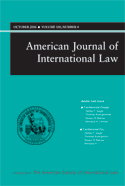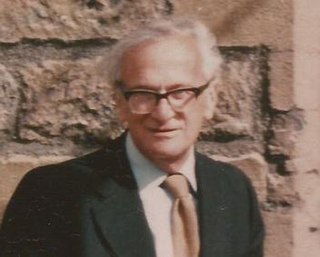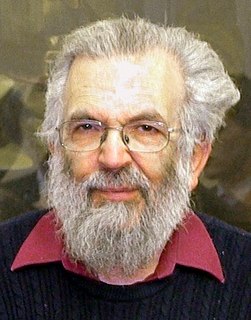 Targeted Killings book cover | |
| Author | Claire Finkelstein Jens David Ohlin Andrew Altman |
|---|---|
| Original title | Targeted Killings: Law and Morality in an Asymmetrical World |
| Country | United Kingdom |
| Language | English |
| Subject | Targeted killing |
| Genre | Law |
| Publisher | Oxford University Press |
Publication date | 30 April 2012 |
| Media type | Hardcover |
| Pages | 440 |
| ISBN | 978-0199646470 |
| OCLC | 757147167 |
| LC Class | 2012933286 |
Targeted Killings: Law and Morality in an Asymmetrical World is a non-fiction compilation book about targeted killing edited by Claire Finkelstein, Jens David Ohlin, and Andrew Altman. It was published by Oxford University Press in 2012. The book grew out of contributions by the authors to a conference in April 2011 at the University of Pennsylvania Law School. Targeted Killings features eighteen essays in five sections arranged by topic. The work argues that after the 11 September attacks by Al-Qaeda in 2001, the United States and other countries began to see the tactic of targeted killing differently. The practice of targeted killing had previously been accepted in situations of self-defence in military settings; after 11 September 2001 it was used to kill non-combatants and those not directly involved in a particular armed force.

Targeted killing is defined as a form of assassination carried by governments against their perceived enemies. Analysts believe it to be a modern euphemism for the assassination of an individual by a state organization or institution outside a judicial procedure or a battlefield.

Oxford University Press (OUP) is the largest university press in the world, and the second oldest after Cambridge University Press. It is a department of the University of Oxford and is governed by a group of 15 academics appointed by the vice-chancellor known as the delegates of the press. They are headed by the secretary to the delegates, who serves as OUP's chief executive and as its major representative on other university bodies. Oxford University has used a similar system to oversee OUP since the 17th century. The Press is located on Walton Street, opposite Somerville College, in the suburb of Jericho.
The University of Pennsylvania Law School is the law school of the University of Pennsylvania, an Ivy League university located in Philadelphia, Pennsylvania. It is among the most selective and oldest law schools in the United States, and is currently ranked 7th overall by U.S. News & World Report. It offers the degrees of Juris Doctor (J.D.), Master of Laws (LL.M.), Master of Comparative Laws (LL.C.M.), Master in Law (M.L.), and Doctor of the Science of Law (S.J.D.).
Contents
The book begins with a discussion of targeted killing of non-combatants, followed by discussions of legalities, the rationale of self-defence, the choice of targets, and when and whether the ends can be used to justify the means. Several contributors defend targeting of non-combatants, while Jeremy Waldron discusses the morality associated with the tactic and argues against its use. Jeff McMahan identifies the problematic nature of targeted killing and emphasizes regulations for law enforcement to avoid abuse of process. Richard V. Meyer writes that any entity wishing to carry out targeted killing should first have to declare war on the targeted parties. Kevin H. Govern examines the elimination of Osama Bin Laden and identifies this killing as justified and the product of a rational decision-making process. In the final portion of the book, Fernando Tesón says that targeted killing is particularly justified against terrorists because they use tactics specifically designed to kill civilians.
Jeremy Waldron is a New Zealand professor of law and philosophy. He holds a University Professorship at the New York University School of Law and was formerly the Chichele Professor of Social and Political Theory at All Souls College, Oxford University. Waldron also holds an adjunct professorship at Victoria University of Wellington. Waldron is regarded as one of the world's leading legal and political philosophers.
Fernando Tesón is an Argentine-American legal scholar who is known for his contributions to the philosophy of law and to neoclassical liberal theory. He is the Tobias Simon Eminent Scholar at Florida State University College of Law. His publications include Humanitarian Intervention: An Inquiry into Law and Morality ; Rational Choice and Democratic Deliberation [with Guido Pincione]; A Philosophy of International Law ; and many articles in law, philosophy, and international relations journals and collections of essays. Before entering academia, Professor Tesón was a career diplomat for the Argentina Foreign Ministry in Buenos Aires for four years. He resigned from the Argentine foreign service in 1981 to protest against the human rights abuses of the Argentine government and serves as Permanent Visiting Professor, Universidad Torcuato Di Tella, Buenos Aires, Argentina. Professor Tesón is also the founder, director, arranger, and bandoneón player, Tango Sur, an Argentine tango band.
The book was well received in law reviews and by academics across multiple disciplines. Robin Geiß and Steven J. Barela praised its coverage of the legal, moral, political, and strategic aspects of targeted killings. [1] [2] Steven R. Ratner welcomed its addition to the academic literature, and Madeline E. Cohen wrote that it would be a useful reference for additional research. [3] [4] Abraham David Sofaer praised its treatment of the subject and tables, though he argued the book could have given more weight to the law enforcement model of the use of deadly force against individuals. [5]
Abraham David Sofaer is a former United States District Judge of the United States District Court for the Southern District of New York, and then a Legal Adviser to the United States State Department. After resigning from the State Department he became the George P. Shultz Senior Fellow in Foreign Policy and National Security Affairs at the Hoover Institution, Stanford University.











